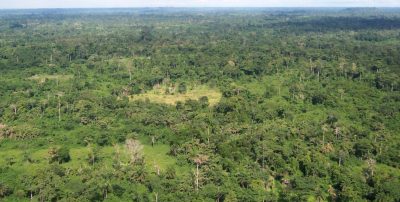Background
Since COP16, some African countries and other developing countries have received support from UN-REDD and other sources to undertake the readiness phase, and with a specific focus on developing strategies for an effective implementation of REDD+ projects in different forest types. The readiness phase is guided by the Warsaw Framework elements such as management of readiness, stakeholder participation, REDD+ strategy and Reference Emission Levels/Forest Reference Emission Levels (REL/FREL) setting, Monitoring, Reporting and Verification (MRV).
The REDD+ implementation phases consists of (i) building sufficient institutional capacity to undertake various REDD+ projects; (ii) developing appropriate data acquisition systems to capture real-time and up-to-date monitoring of forest cover and emission levels; (iii) formulating national strategies for REDD+; (iv) developing action plans and improving results-based payments. Generally, REDD+ is implemented in 3 phases namely:
(1) REDD+ Readiness Preparation Phase (activities include identification of drivers of deforestation and degradation, development of a national plan and development of a REDD+ infrastructure and develop Readiness Preparation Proposal (R-PP), development of National REDD+ Strategy)
(2) Implementation Phase /Scaling up Phase (activities include implementation of support activities carry out pilot projects, development of National Forest Monitoring Systems - a credible system for measurement, reporting and verification (MRV), establishment of Reference Emission Levels (REL), building technical, institutional and human capacity, establishing safeguards and grievance mechanisms and clarifying rights to forests, land and carbon. This results into the preparation of the R-Package)
(3) Result based Payment Phase (activities include control emissions, monitor, measure report and verify)
However, efforts made by African countries towards REDD+ implementation are still very poorly documented and analyzed.
Objectives
The general objective of this work is to assess the level of implementation of REDD+ in various forest types (rain forest, mountains, mangroves, woodland and savanna, and parklands of the Sahel) to generate knowledge on best practices, opportunities and challenges as well as capacity gaps in the implementation of REDD+ across different forest types and in the different phases of REDD+.
To achieve these objectives, the African Forest Forum has recruited a regional expert to undertake studies on REDD+ implementation in some Anglophone and Lusophone countries with specific focus on the following main tasks:
- Map out countries that are on readiness, implementation, and investment phases of REDD+ in these countries.
- Analyze and document REDD+ strategies and implementation plans as well as implementation phases in these countries.
- Assess conditions and determinants for effective implementation of each of the REDD+ phases;
- Evaluate opportunities and challenges in implementing each REDD+ phase; and
- Analyze the level of funding raised for REDD+ activities in these countries.
- Undertake data collection on different REDD+ initiatives at national level including:
- The Phases of REDD+ attained by the country (readiness, implementation, and investment)
- Existence of a National REDD+ Strategy and Implementation Plans
- Whether Measuring, Reporting and Verification (MRV) Systems are in place
- Conditions and determinants for effective implementation of each of the REDD+ phases in the country (i.e. what conditions and factors that made the implementation of REDD+ successful or unsuccessful in the country)
- Opportunities in implementing the different REDD+ phases
- Challenges in implementing the different REDD+ phases
- The funds that have been delivered in the implementation of the different REDD+ phases/activities in the country (Readiness Phase; Implementation Phase and Investment Phase)
- Title page
- Acronyms/Abbreviations
- Table of contents
- Executive summary: A self-contained summary.
- Introduction: including Description of the objectives, terms of reference and methodology
- Main body of report including the detailed methodology and findings
- Conclusions: A concise statement on each task covered
- References
- Annexes
- Have at least a master’s degree in any of the following areas: forestry, natural resources management, environmental issues, climate change, or any related area, a PhD will be an advantage.
- have at least five years’ working experience in forest policy, forest governance and climate change.
- Have written at least a book chapter, and or published peer reviewed journal papers on forest and climate change.
- Excellent writing and oral communication skills in English


